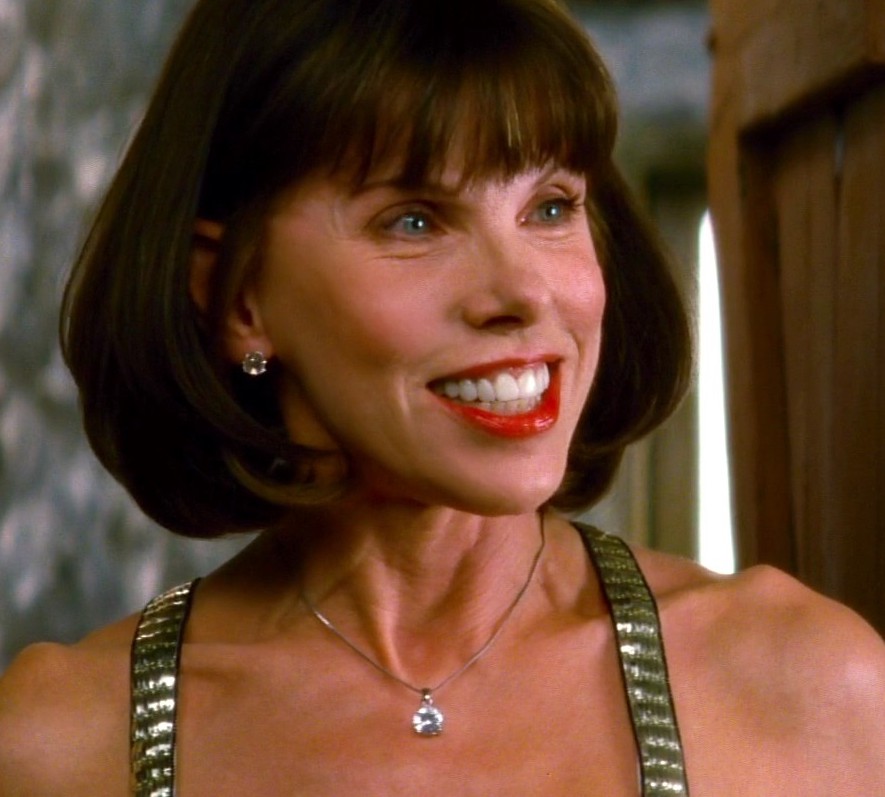Tanya Mamma Mia: A Comprehensive Guide To The Iconic Movie Franchise
There’s something magical about "Mamma Mia" that has captivated audiences worldwide. Since its debut, this film series has become a cultural phenomenon, blending the nostalgia of ABBA's music with heartwarming storytelling. Whether you're a long-time fan or new to the franchise, "Tanya Mamma Mia" serves as your ultimate guide to everything you need to know about these beloved films.
From its vibrant cast to its unforgettable soundtrack, "Mamma Mia" has left an indelible mark on pop culture. This guide will delve into the origins of the franchise, its impact on cinema, and the reasons behind its enduring popularity. If you’ve ever wondered about the making of the movie, its characters, or the meaning behind its music, you’re in the right place.
As we explore "Tanya Mamma Mia," we’ll uncover fascinating details about the production, the cast, and the legacy of the franchise. By the end of this article, you’ll have a deeper appreciation for why "Mamma Mia" continues to resonate with fans across generations.
Read also:Discovering The Heart Of Faith Manchester United Methodist Church Missouri
Table of Contents
- The History of Mamma Mia
- The Iconic Cast of Mamma Mia
- The Role of ABBA's Music
- Behind the Scenes of Mamma Mia
- The Mamma Mia Franchise Expansion
- Cultural Impact of Mamma Mia
- Biography of Key Cast Members
- Awards and Recognition
- The Future of the Mamma Mia Franchise
- Frequently Asked Questions About Mamma Mia
The History of Mamma Mia
The story of "Mamma Mia" begins long before the films hit the big screen. It all started as a stage musical in 1999, created by British producer Judy Craymer. The musical quickly gained popularity, becoming one of the most successful productions in theater history. Its success paved the way for the first movie adaptation in 2008, which was directed by Phyllida Lloyd.
The movie, like the musical, revolves around a young woman named Sophie Sheridan who invites three potential fathers to her wedding in the hopes of discovering her true parentage. Set against the backdrop of a picturesque Greek island, the film uses ABBA’s music to drive the narrative and evoke emotions.
While the plot may seem simple, its universal themes of love, family, and self-discovery struck a chord with audiences worldwide. The success of the first film led to the release of "Mamma Mia! Here We Go Again" in 2018, which expanded the story with flashbacks and new characters.
Origins of the Musical
The idea for the musical came from a desire to create a story around ABBA's music without altering the original lyrics. Judy Craymer worked closely with Benny Andersson and Björn Ulvaeus, two members of ABBA, to ensure the project stayed true to the band's spirit. Their involvement added an authenticity that resonated with fans of the band.
Some key highlights of the musical's history include:
- First premiered in London's West End in 1999.
- Reached Broadway in 2001, where it ran for over 14 years.
- Translated into multiple languages and performed in over 40 countries.
The Iconic Cast of Mamma Mia
One of the reasons "Mamma Mia" became such a hit is its stellar cast, featuring some of Hollywood’s biggest names. From Meryl Streep to Pierce Brosnan, the film brought together actors who not only brought their characters to life but also showcased their singing talents.
Read also:Does Barron Trump Actually Sing Unveiling The Truth Behind The Rumors
Meryl Streep stars as Donna Sheridan, the free-spirited mother of Sophie. Her performance was widely praised for its authenticity and emotional depth. Other notable cast members include Amanda Seyfried as Sophie, Colin Firth as Sam Carmichael, Stellan Skarsgård as Bill Anderson, and Dominic Cooper as Sky.
In the sequel, the cast expanded to include Lily James as a young Donna, Cher as Sophie's grandmother Ruby, and Andy Garcia as Fernando, Donna's ex-boyfriend. These additions added fresh energy to the franchise while staying true to its roots.
Cast Contributions
Each actor brought something unique to their role, contributing to the film's charm:
- Meryl Streep's portrayal of Donna was both humorous and heartfelt.
- Amanda Seyfried's Sophie embodied innocence and determination.
- Pierce Brosnan's comedic timing as Bill Anderson delighted audiences.
The Role of ABBA's Music
At the heart of "Mamma Mia" lies the timeless music of ABBA. The band's catchy tunes and relatable lyrics provided the perfect backdrop for the story, enhancing its emotional impact. Songs like "Dancing Queen," "Mamma Mia," and "Waterloo" became synonymous with the franchise, introducing a new generation to ABBA's music.
ABBA's Benny Andersson and Björn Ulvaeus were heavily involved in the musical and film adaptations, ensuring the music was used authentically. Their input helped maintain the integrity of the songs while allowing them to fit seamlessly into the narrative.
Some of the most iconic moments in the films feature performances of ABBA's hits. For example, the opening sequence of "Dancing Queen" in the first movie set the tone for the entire franchise, while "When I Kissed the Teacher" in the sequel added a playful twist to the story.
Impact of ABBA's Music
ABBA's music has had a lasting impact on both the films and their audiences:
- Introduced ABBA's music to a younger audience.
- Revived interest in the band's original albums.
- Provided a universal language for storytelling through music.
Behind the Scenes of Mamma Mia
The making of "Mamma Mia" was a labor of love, involving countless hours of preparation and collaboration. From casting to filming, every aspect of the production was carefully planned to bring the story to life.
The filming locations, particularly the Greek island of Skopelos, played a crucial role in setting the mood for the films. The picturesque landscapes and vibrant colors added to the films' visual appeal, making them a feast for the eyes.
Director Phyllida Lloyd faced the challenge of balancing the musical numbers with the narrative, ensuring the film flowed naturally. Her vision was supported by a talented team of choreographers, costume designers, and set designers who worked tirelessly to create the perfect atmosphere.
Challenges and Triumphs
Despite its success, the production of "Mamma Mia" wasn't without its challenges:
- Coordinating the schedules of such a large cast.
- Adapting the stage musical for the screen while maintaining its essence.
- Filming in remote locations with limited resources.
The Mamma Mia Franchise Expansion
The success of the first "Mamma Mia" film naturally led to discussions about a sequel. Released a decade later, "Mamma Mia! Here We Go Again" expanded the story by exploring Donna's past and Sophie's present. The film provided deeper insights into the characters' lives while introducing new ones.
The franchise's expansion didn't stop there. Plans for future projects, including a possible third film, have been discussed, fueling excitement among fans. These projects aim to continue the legacy of "Mamma Mia" while embracing new storytelling techniques.
According to reports, the third installment may delve further into the lives of the characters introduced in the second film, offering fresh perspectives and adventures.
What's Next for the Franchise?
While details remain scarce, fans can expect:
- More music-driven storytelling.
- Exploration of new characters and relationships.
- Continued emphasis on themes of love and family.
Cultural Impact of Mamma Mia
"Mamma Mia" has had a profound cultural impact, influencing everything from fashion to tourism. The films have inspired countless fans to visit the filming locations, boosting local economies. They've also sparked a renewed interest in musicals, encouraging more productions to hit the big screen.
Beyond its entertainment value, "Mamma Mia" has resonated with audiences on a personal level. Its themes of self-discovery, love, and family have struck a chord with viewers of all ages, making it a timeless classic.
According to a study published in the Journal of Popular Culture, the franchise has contributed significantly to the global popularity of musical films, paving the way for other successful adaptations.
Why "Mamma Mia" Matters
Its cultural significance can be summarized as:
- A celebration of music and storytelling.
- An exploration of universal human experiences.
- A catalyst for the resurgence of musical films.
Biography of Key Cast Members
Meryl Streep
Meryl Streep, born Mary Louise Streep on June 22, 1949, in Summit, New Jersey, is one of the most celebrated actresses in Hollywood. Her career spans over five decades, during which she has received numerous accolades, including three Academy Awards.
| Name | Meryl Streep |
|---|---|
| Born | June 22, 1949 |
| Place of Birth | Summit, New Jersey, USA |
| Occupation | Actress |
Amanda Seyfried
Amanda Seyfried, born on December 2, 1985, in Allentown, Pennsylvania, gained fame for her role as Sophie Sheridan in "Mamma Mia." Known for her versatility, she has appeared in a wide range of films and television shows.
| Name | Amanda Seyfried |
|---|---|
| Born | December 2, 1985 |
| Place of Birth | Allentown, Pennsylvania, USA |
| Occupation | Actress, Singer |
Awards and Recognition
"Mamma Mia" has received numerous awards and nominations, recognizing its contribution to cinema. Some notable accolades include:
- Golden Globe nomination for Best Motion Picture – Musical or Comedy.
- MTV Movie Award for Best Musical Moment.
- People's Choice Award for Favorite Movie Song.
These awards underscore the film's impact on audiences and its place in cinematic history.
The Future of the Mamma Mia Franchise
As the franchise continues to evolve, fans eagerly anticipate what's next. With a strong foundation built on music, storytelling, and beloved characters, the possibilities are endless. Future projects may explore new directions while staying true to the franchise's core values.
According to industry insiders, the next installment could incorporate more contemporary elements while honoring the original's charm. This approach would ensure the franchise remains relevant and appealing to new audiences.
Frequently Asked Questions About Mamma Mia
Here are some common questions about "Mamma Mia" answered:
Who wrote the screenplay for "Mamma Mia"?
The screenplay for the first film was written by Catherine Johnson, while the sequel was co-written by Johnson, Richard Curtis, and Jennifer Lee.
How many songs from ABBA are featured in the films?
Both films feature over 20 songs from ABBA, including classics like "Dancing Queen," "Mamma Mia," and "Super Trouper."
Will there be a third "Mamma Mia" film?
While no official announcement has been made, plans for a third film are reportedly in development


